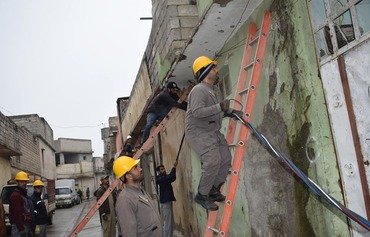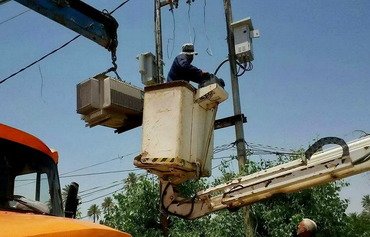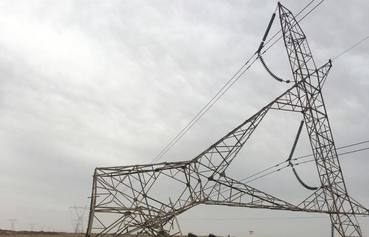The Iraqi Ministry of Electricity in late May announced it has restored electricity to eastern and western Mosul, concluding a large-scale rehabilitation effort that began in December 2016.
This initiative included the repair of power transmission and supply networks damaged during the war on the "Islamic State of Iraq and Syria" (ISIS).
The electricity sector suffered the most damage at the hands of ISIS, said Ahmed Amjad, director of the Ninawa electricity distribution centre.
"We started rehabilitation work early, on December 15th, 2016," he told Diyaruna. "As soon as the army would liberate any residential area from terrorists, we would head there with our staff and start repairing the damage."
![New power networks are installed to meet the demand for electricity in western Mosul neighbourhoods. [Photo courtesy of the Directorate for Electricity Distribution in Ninawa]](/cnmi_di/images/2018/06/15/13062-Iraq-western-Mosul-600_384.jpg)
New power networks are installed to meet the demand for electricity in western Mosul neighbourhoods. [Photo courtesy of the Directorate for Electricity Distribution in Ninawa]
More than 65% of the power networks in eastern Mosul were destroyed, Amjad said, with the western part of the city suffering an even higher level of damage.
"We have been working at exceptional capacity, and have tried to overcome all challenges and problems that would come our way," he said.
"We have now completed the mission, and have managed to restore service to all of Mosul," he added. "There is no neighbourhood left without service, with the exception of the Old City," which suffered the most extensive damage.
In the Old City, residents can now access electricity from small generators, Amjad said, noting that these are currently servicing 1,000 users with up to 10 amperes per customer.
"This is a temporary fix until the problem is solved," he said.
Power supply remains weak
Despite the completion of rehabilitation work, power supply in Mosul remains weak, which Amjad attributes to the regular maintenance work on the national power grid conducted by the Ministry of Electricity.
This has resulted in a temporary reduction of the daily electricity allowance for Mosul from 1,200 megawatts a few weeks ago to 600 megawatts, he said.
"We would receive energy supplies and pass them on to residents so they would get an average of 20 hours of electricity a day, but now that has gone down to seven hours," he said.
"We hope to soon return to a high capacity level after maintenance work is completed and new production units are introduced," he said.
Rehabilitating the electricity sector in Mosul poses a huge challenge as it suffered heavy damage, said Ninawa provincial council services committee member Hosam Eddin al-Abbar.
"Accomplishments in this regard so far are significant because they were achieved in a record period, given the level of destruction that affected power networks and towers," he told Diyaruna.
Reduced supply hours are a nationwide problem, he said, adding that "we think the only lasting solution to the chronic power shortage lies in investments".
"We have to open the door for investors so we can build power plants and make up for shortages," he said.
Ninawa provincial council security committee member Hassan Shabib agreed with him, noting that electricity supplies are still sub-par as a result of low production, which cannot cover demand during peak times.
"We need to diversify our power production sources and build more gas powered facilities," he told Diyaruna. "Our electricity needs are rising every year and we need realistic solutions to address the crisis at hand."

![Electricity workers repair a generator damaged by the 'Islamic State of Iraq and Syria' in Mosul. [Photo courtesy of the Directorate for Electricity Distribution in Ninawa]](/cnmi_di/images/2018/06/15/13058-Iraq-Mosul-electricity-600_384.jpg)







No comment.
Reply1 Comment(s)